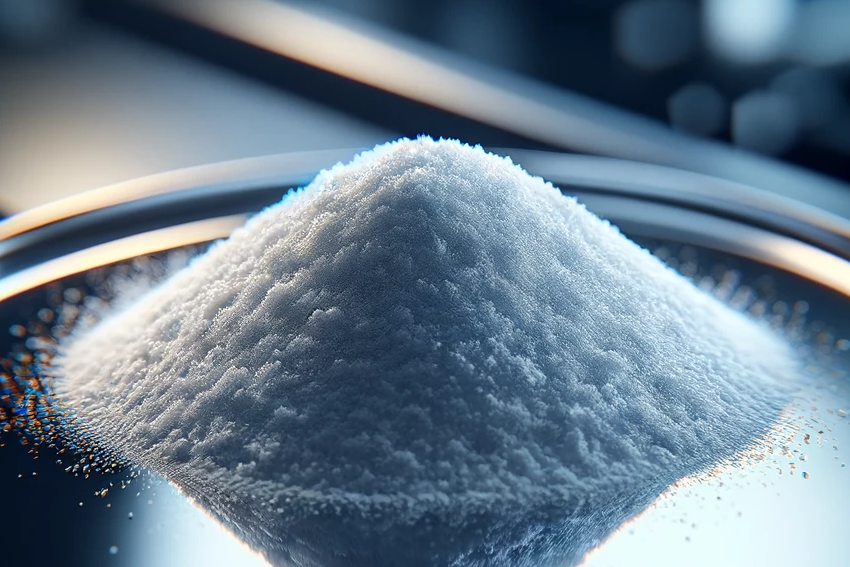Sodium gluconate

What is sodium gluconate?
Sodium gluconate is the sodium salt of gluconic acid, a mild organic acid obtained by the fermentation of glucose. It is known for its ability to bind metal ions and is used in industry as a chelating agent, in detergents, in cosmetics and also in food as a stabilizer and preservative. But how does it fit into a dog's diet?
The sweet side of sodium gluconate
Benefits in dog nutrition
Mineral absorption: One of the main benefits of sodium gluconate is its ability to improve the absorption of minerals. It can help to make important nutrients such as iron and calcium available in the dog's body.
Harmless preservation: As a preservative, sodium gluconate helps to maintain the freshness of the food without having to resort to harsher chemicals. It is relatively mild and is generally well tolerated.
Neutral taste: Unlike many other additives, sodium gluconate does not negatively affect the taste of the food, making it easier for dogs to accept.
Possible bitter notes: Disadvantages of sodium gluconate
Dosage considerations
Sodium loading: Although sodium gluconate is considered safe, high intake can lead to undesirable sodium loading, especially in dogs with certain health conditions such as heart or kidney problems.
Gastrointestinal sensitivities: Some dogs may be sensitive to sodium gluconate, which can lead to mild digestive upset, especially if consumed in excess.
Environmental and manufacturing concerns
Sustainability of production: Obtaining sodium gluconate through the fermentation of glucose raises questions about sustainability and environmental impact, depending on the source of the glucose.
A balanced menu: Sodium gluconate in moderation
Individualized nutritional approaches
It's important to consider your dog's individual needs and health conditions when it comes to sodium gluconate intake. Not every dog reacts the same, and what is healthy for one may be less suitable for another.
Choosing the right food
Look for high-quality dog food that uses sodium gluconate in moderate amounts and provides a balanced mix of nutrients. Quality manufacturers are transparent about their ingredients and where they come from.
A thoughtful spoonful of gluconate
Sodium gluconate may be a complex-sounding ingredient in dog nutrition, but with the right understanding and thoughtful application, it can play a useful role. The benefits, particularly in terms of mineral absorption and food preservation, are worth noting as long as the potential drawbacks are mitigated by conscious food selection and adjusted dosing. As with every aspect of dog nutrition, balance is key - a principle that also applies to sodium gluconate. By making informed decisions about your dog's diet, you can ensure they live a healthy, happy life.
If you notice any signs of hypersensitivity or poisoning in your dog, you should see your vet immediately. We are not a substitute for a vet, but we try to be as accurate as possible. Every dog reacts differently and we recommend you get a second opinion or consult your vet if in doubt.
Stay healthy and take good care of your four-legged friend!😊
Similar to Sodium gluconate
Calcium gluconate is a salt of gluconic acid, an organic acid found in many plants. It contains around 9% calcium and has a high bioavailability, which means that it can be easily absorbed and...
Potassium gluconate is a white, crystalline powder that is often used in medicine to treat potassium deficiencies. It is a form of potassium that is easily absorbed by the body and is therefore...
Magnesium gluconate is formed when magnesium combines with gluconic acid. This form of magnesium is characterized by moderate bioavailability, which means that it can be easily absorbed and utilized...
Sodium lactate is the sodium salt of lactic acid, a naturally occurring organic acid that is found in many foods and is also produced in the body during metabolism. In the food industry, sodium...



